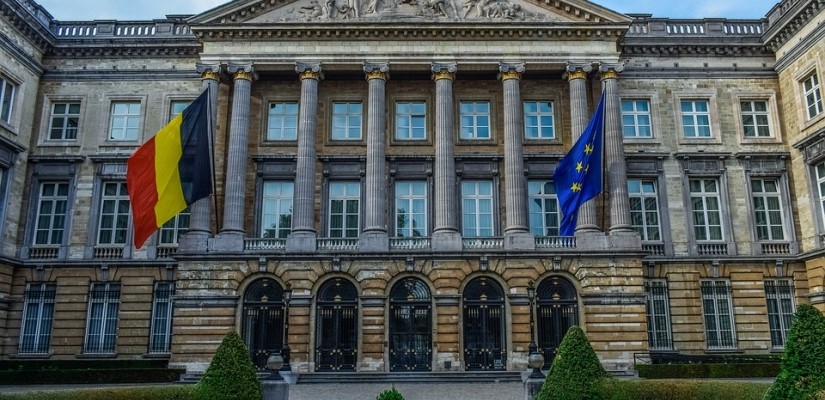On Sunday May 26, 2019, roughly 7.2 million Belgians went to the polls to votes in three elections: the European Parliament election, the Belgian federal election, and the Belgian regional elections. Voter turnout is commonly high, as voting is mandatory in the country. Despite this, slow government formation has burdened the country in the past and the split of federal election results between two political extremes only adds to impending difficulties.
The fact that the country is separated into two regions, Dutch-speaking Flanders in the North and French-speaking Wallonia in the South, complicates Belgian politics. A strong trend in the 2019 federal election is that right-wing parties are immensely popular in Flanders, whereas Wallonia has been turning toward far-left solutions.
In the Belgian Federal Elections, the biggest party, the nationalist, right-wing New Flemish Alliance (N-VA) lost a significant number of votes and ended up with a result of 16%. Thefar-right party Vlaams Belang (VB) emerged as the relative winner of the federal elections. With a surge of 8.3 percent points, the VB gained 12% of all votes. This immensely raises the party’s number of seats in the lower house of the Federal Parliament from 3 to 18. The VB is a proponent of anti-immigration policies in Belgium and Europe, supports the introduction of assimilation policies across Europe, and advocates for the independence of Flanders.
Other victors of the Sunday election were the far-left Worker’s Party (PTB) and the Green parties ECOLO and Groen. The PTB increased its vote share by almost 5%, coming in fifth place with 8.6%. In total, the PTB gained 12 seats, a 10-seat increase compared to 2014. The environmentalist ECOLO and Groen parties attracted voters all over but particularly in Brussels, receiving 6% of votes respectively. In third place came the socialist Parti Socialiste (PS) with 9.5%, strengthening left-wing power in the country.

The outcome of the Belgian election reflects a general ongoing trend in European politics. Across the continent, Eurosceptic and far-right parties have gained substantial traction after the European migrant crisis of 2015. At the same time, environmentalist parties have also achieved greater relevance as climate change becomes a higher priority on political agendas in Europe.
The tremendous split in election results between the far-left and the far-right makes determining the next steps for Belgium difficult. In the past, coalition formation has already proven difficult in Belgium. After the federal election in 2010, it took politicians 541 days to arrange a coalition. The government elected after the 2014 election was formed relatively quickly – within fourth months – but collapsed in December 2018 as opposing opinions on the United Nations (UN) global pact for migration split the government apart. The nationalist N-VA was strongly against the migration-friendly UN pact, but the Prime Minister and leader of the liberal Reformist Movement (MR) party, Charles Michel, passed a resolution in support of the pact. As a consequence, the N-VA left the coalition and Michel continued with an interim minority government.
The possibility of a coalition between the far-left and the far-right seems highly unlikely. Furthermore, Belgian parties refuse to form a coalition with the VB because of the VB’s far-right policies. At the same time, the nationalist N-VA is unwilling to cooperate with the left-wing PS and vice versa. One possible outcome of this situation would be a coalition without the N-VA or the VB but, instead, with the PS and a number of other left-wing parties. This would result in a Flemish minority in the government despite the fact that the Flemish N-VA is the strongest party of the country. In this case, frustrations among politicians and citizens of Flanders would lead to increased tensions between the two Belgian regions. Such challenges also need to be anticipated once a government composition is settled.
